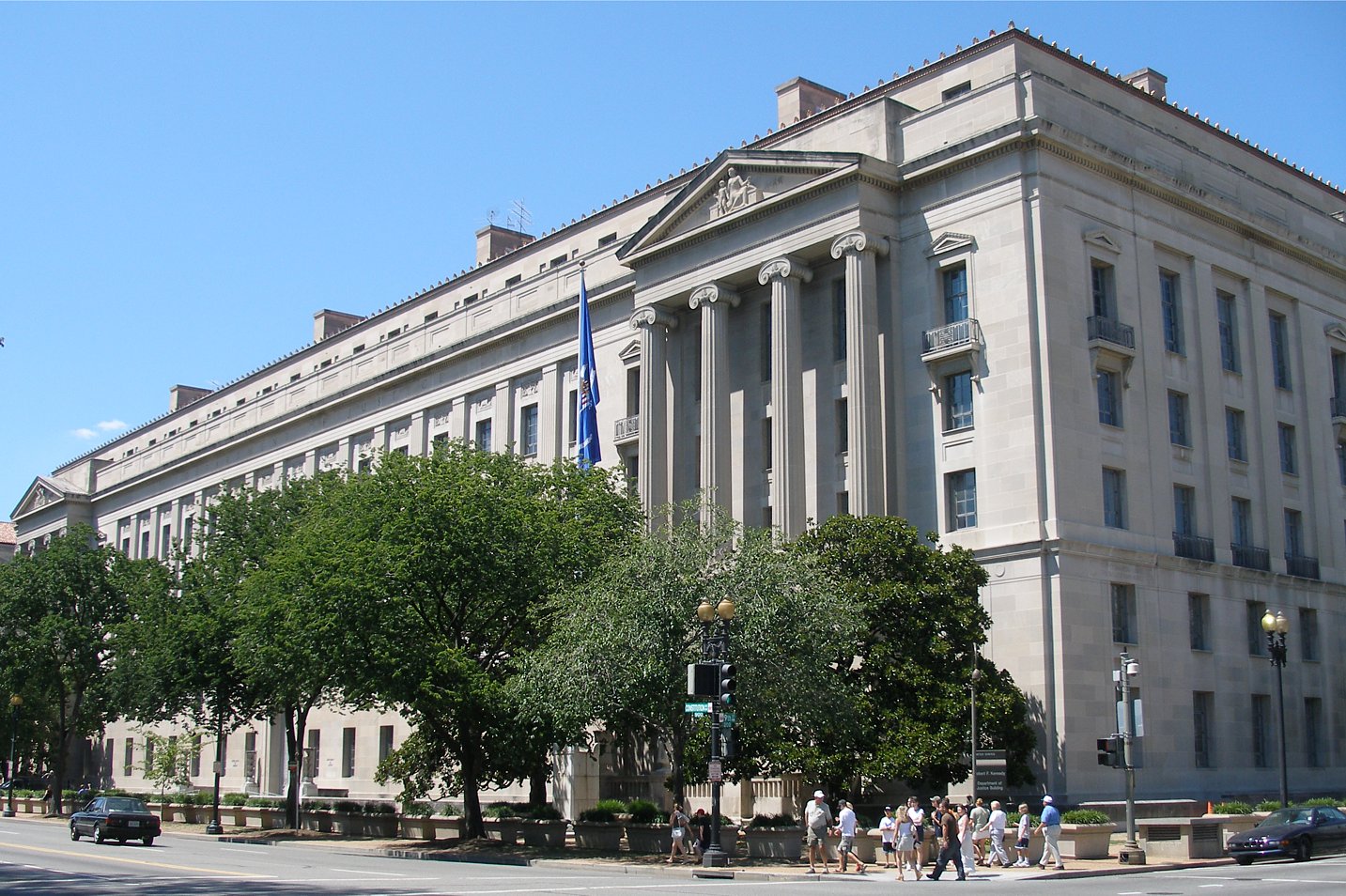
March 28, 2022
The DOJ Should Follow Its Own Guidance on FOIA Administration
The celebration of Sunshine Week earlier this month underscored the importance of the continued effort to ensure effective administration of the Freedom of Information Act (FOIA) and its central role for open democracy. Passed by Congress in 1966, FOIA allows citizens to request unpublished records and information from the federal government. Watchdog organizations have long relied on records obtained from FOIA requests to hold the government accountable to public interests. But, the system comes with a plethora of flaws that prevents adequate timeliness and transparency. Endless backlogs, increased usage of exemptions, partially redacted documents, and outright denials leave much to be desired in the administration of FOIA today.
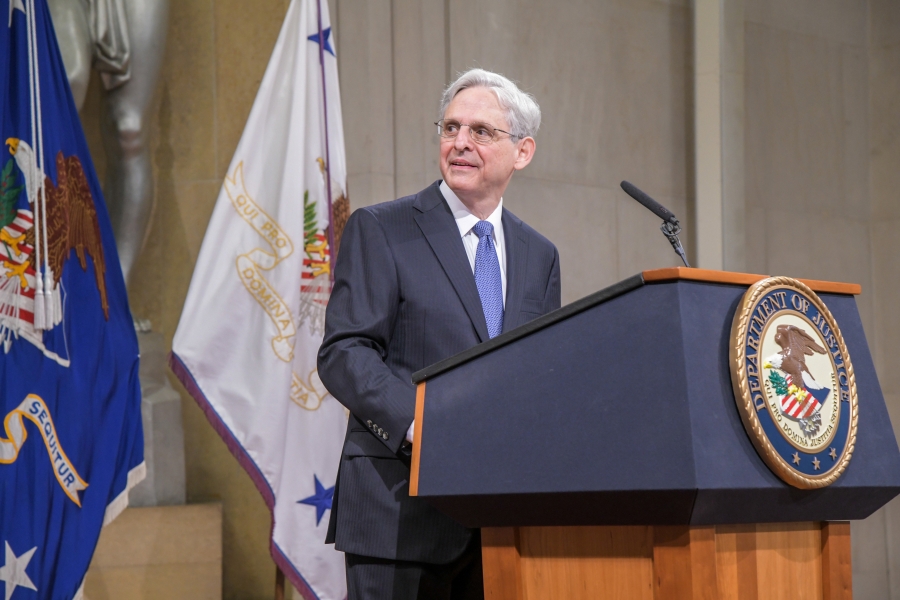
March 25, 2022 | Left Anchor
LEFT ANCHOR PODCAST: The Hapless Merrick Garland, with Jeff Hauser
Why is Biden’s attorney general so reluctant to charge Donald Trump and his cronies for their crimes? Revolving Door Project founder and executive director Jeff Hauser joined Prospect managing editor Ryan Cooper on the Left Anchor podcast to discuss.
March 16, 2022 | Revolving Door Project Newsletter
Facing Rising Prices and Falling Political Fortunes, Biden Needs to Go on Offense
With each passing day, Biden and his party appear to be facing ever more severe political headwinds. Inflation remains elevated, with a new variant threatening to further aggravate supply chain problems. Meanwhile, the (warranted) response to the war in Ukraine has specifically pushed gas prices upwards. Add to this that the Federal Reserve appears eager to throw millions out of work to slow the economy and that some of Biden’s outstanding nominations are in peril thanks to his own, uncooperative co-partisans, and things are undoubtedly looking bleak.
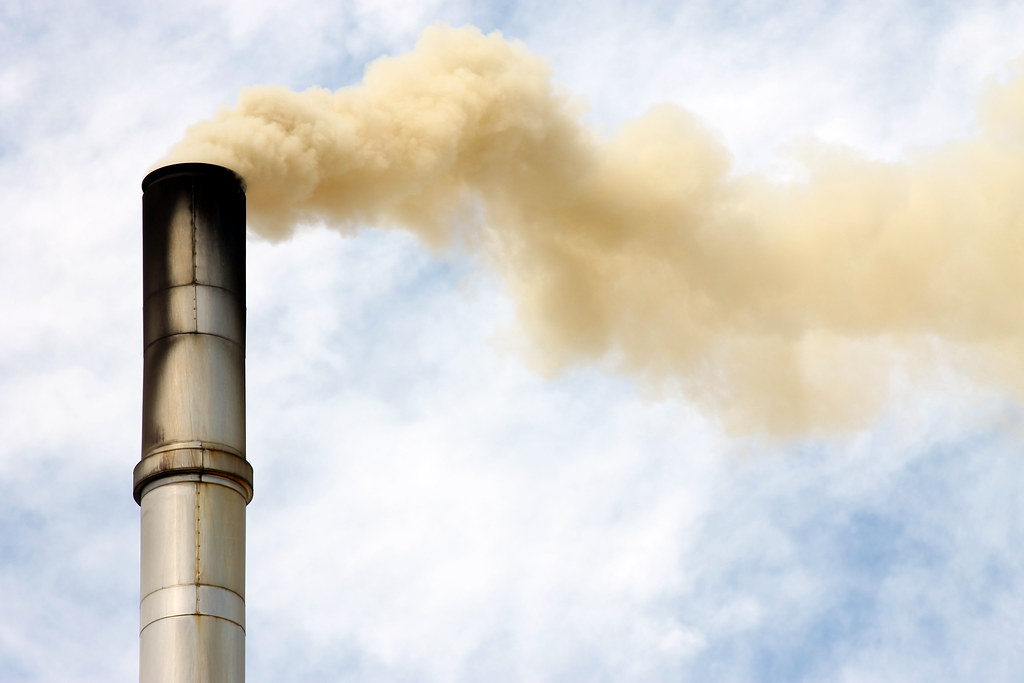
March 16, 2022
To Take Down Corporate Polluters, the DOJ's Environmental Enforcer Needs More Capacity
Overseen by Assistant Attorney General Todd Kim, the Environment and Natural Resources Division (ENRD) is one of seven litigating components of the Department of Justice (DOJ). The ENRD is divided into ten sections, each with its own area of expertise. The Division fulfills a wide range of responsibilities. For instance, the ENRD is tasked with protecting the nation’s natural resources and enforcing U.S. civil and criminal environmental laws, including the Clean Water Act, Clean Air Act, and hazardous waste laws. The Division also handles tribal rights and resources cases. Other responsibilities include, but are not limited to, “facilitating cleaner energy and ensuring marketplace integrity; defending and adjudicating water rights for Federal agencies and Indian Tribes, as well as policies and decisions that support the generation of clean energy on Federal lands and the outer continental shelf; and, promoting international climate justice activities and the advancement of legislative and policy matters related to climate change.”
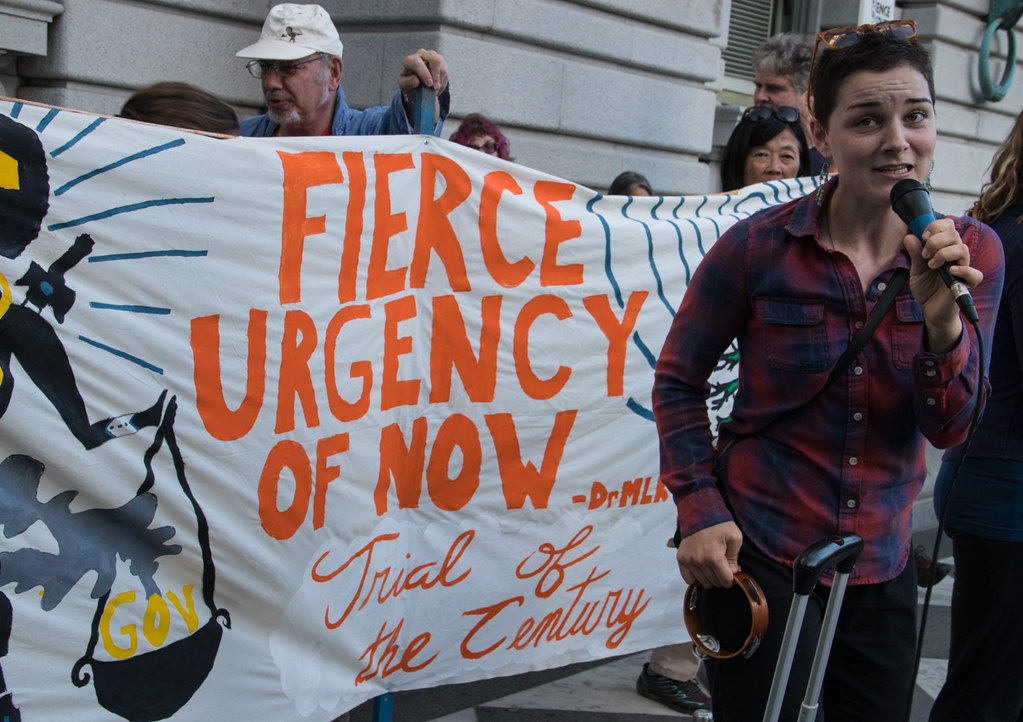
March 15, 2022 | The American Prospect
Op-Ed ClimateCorporate CrackdownDepartment of JusticeEthics in GovernmentExecutive BranchIndependent Agencies
Where the Government’s Environmental Lawyers Stand
Joe Biden pledged that as president he would hold polluters accountable. But in 2021, the number of criminal cases against polluters referred to the Justice Department dropped even lower than the year before. At best, DOJ officials have set their sights on bringing environmental crime enforcement back up to Obama-era levels—but not exceeding them. That’s a decidedly muted goal; environmental crimes enforcement was higher under George W. Bush than Obama, and has always been underfunded.
March 09, 2022 | Revolving Door Project Newsletter
The Seeming Minutiae that Matters Greatly
The Biden administration is continuing to ramp up economic pressure on Russia through a far-reaching sanctions regime. However, even as many experts praise the United States’ measures, particularly those aimed at Russian oligarchs’ overseas wealth, they are also questioning how effective they will be in the face of loopholes and implementation challenges.
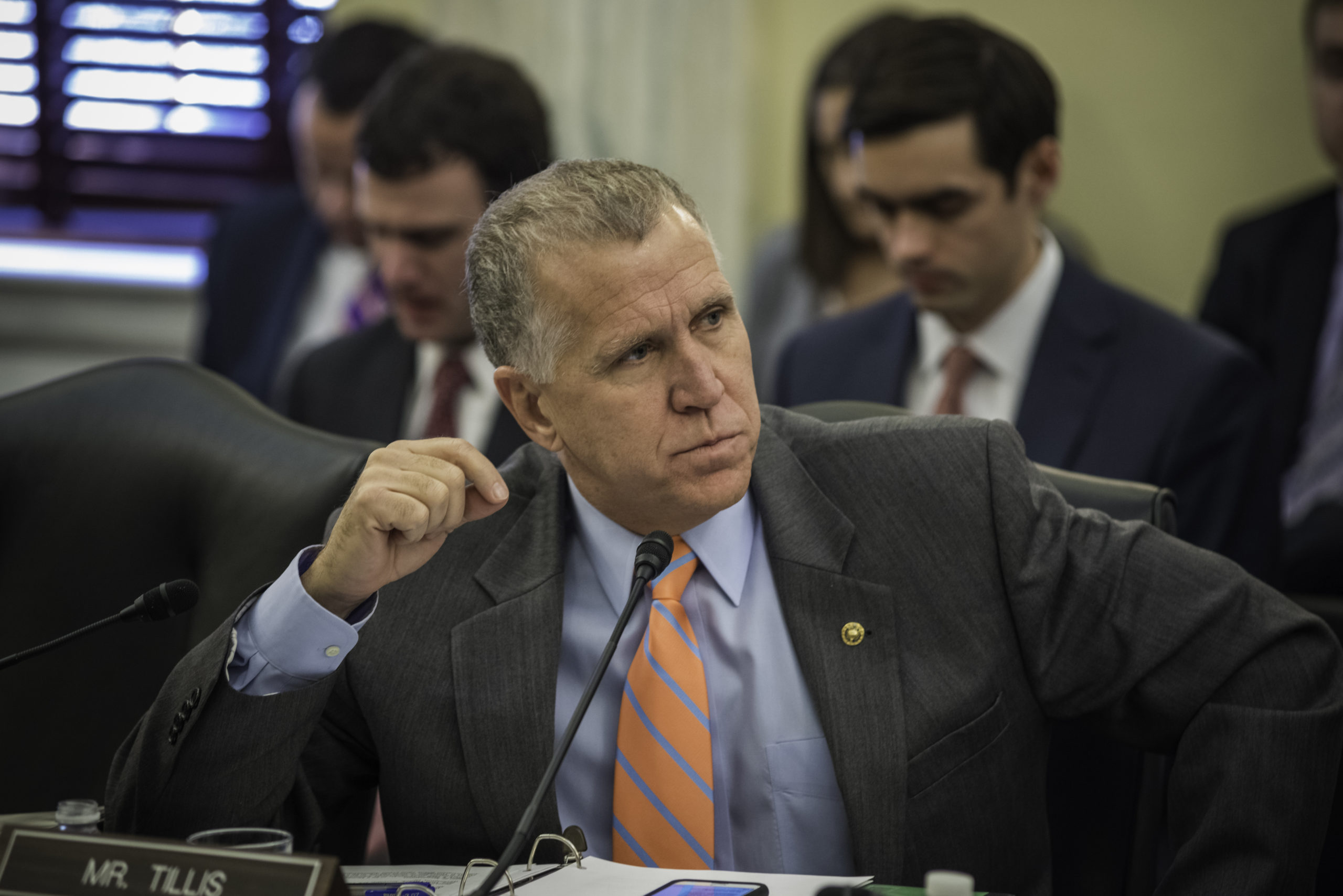
March 03, 2022
Revolver Spotlight: Michael Easley Jr. and the Office of the U.S. Attorneys
As officers with extraordinary latitude and immense authority within their districts, U.S. Attorneys have the ability to implement ambitious reforms to the federal legal landscape in a direct and immediate fashion. U.S. Attorneys also have incredible freedom to reorient the undercurrent priorities of the federal legal system and to center historically under prosecuted, but systemic nonetheless, crimes such as corporate and white collar malfeasance. Because of the incredible potential of the position, it is critical that these offices are prioritized in Biden’s staffing of the federal bureaucracy. However, as we have examined previously, the Biden administration has proven remarkably slow in its nominations process for U.S. Attorneys positions, seemingly in part due to an unwillingness to decisively abandon deference to a racist Senate decorum procedure known as blue slips.
March 02, 2022 | Revolving Door Project Newsletter
Dylan Gyauch-Lewis Max Moran Toni Aguilar Rosenthal
Corporate CrackdownDepartment of JusticeEconomic PolicyFinancial Regulation
What Can Biden Actually DO From His State Of The Union?
If there’s one thing the readers of this newsletter definitely haven’t read yet today, it’s a reaction to last night’s State of the Union address.
Like many, we were hoping to see President Joe Biden adopt a new overall message to the American people as his poll numbers have sagged and Democrats brace for a rough midterm election in just eight short months. We’ve been making our pitch for the last few months about what that message should be: Biden ought to use his powers to crack down on corporate villains, and heavily publicize doing so. The ubiquity of already unpopular enemies and latent presidential powers gives Biden the chance to clarify to the public what exactly he stands for. Our Jeff Hauser and Max Moran laid out the case for this “Corporate Crackdown” message in Democracy Journal in January.
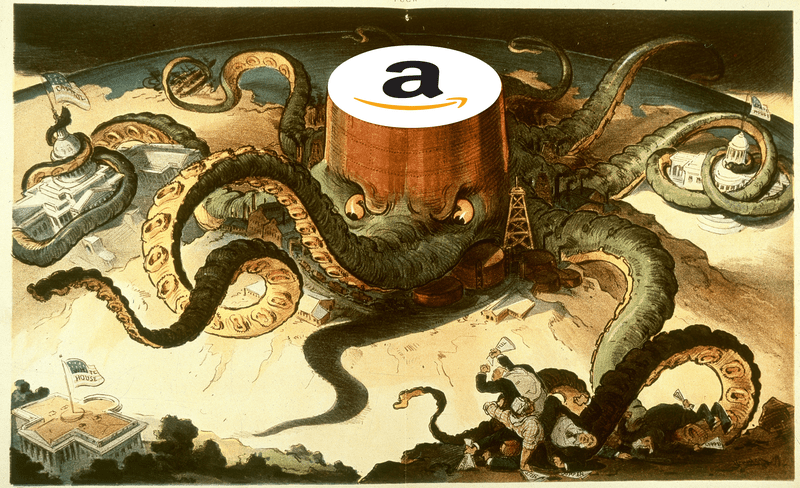
February 22, 2022
Making The Antitrust Division Competitive: A Look At Capacity As Biden Revitalizes Enforcement
The Department of Justice’s Antitrust Division (ATR) is, along with the Federal Trade Commission (FTC), the primary regulator of antitrust law and is responsible for ensuring markets’ competitiveness. In that capacity, it investigates corporate consolidation and allegations of collusion and anticompetitive practices that undermine the free market. ATR is also responsible for supervising mergers and acquisitions to ensure that companies cannot establish monopolies. While both ATR and the FTC share this objective, the two divide jurisdiction based on industry. ATR also investigates and prosecutes criminal antitrust violations.
February 16, 2022 | Revolving Door Project Newsletter
Is Crypto Experiencing Inflation in the Price of Revolvers?
Inflation, it’s all anyone can seem to talk about. With prices rising at their fastest rate in more than three decades, the White House is understandably looking for ways to get things under control. Rhetorically, they’ve pointed their finger at corporate greed, highlighting the stark contradiction between companies’ claims that price hikes are unavoidable and their record profits (which, by definition, mean they can raise prices faster than their costs are rising). Action to follow that diagnosis, however, has been more muted. That is not because they don’t have options at their disposal.
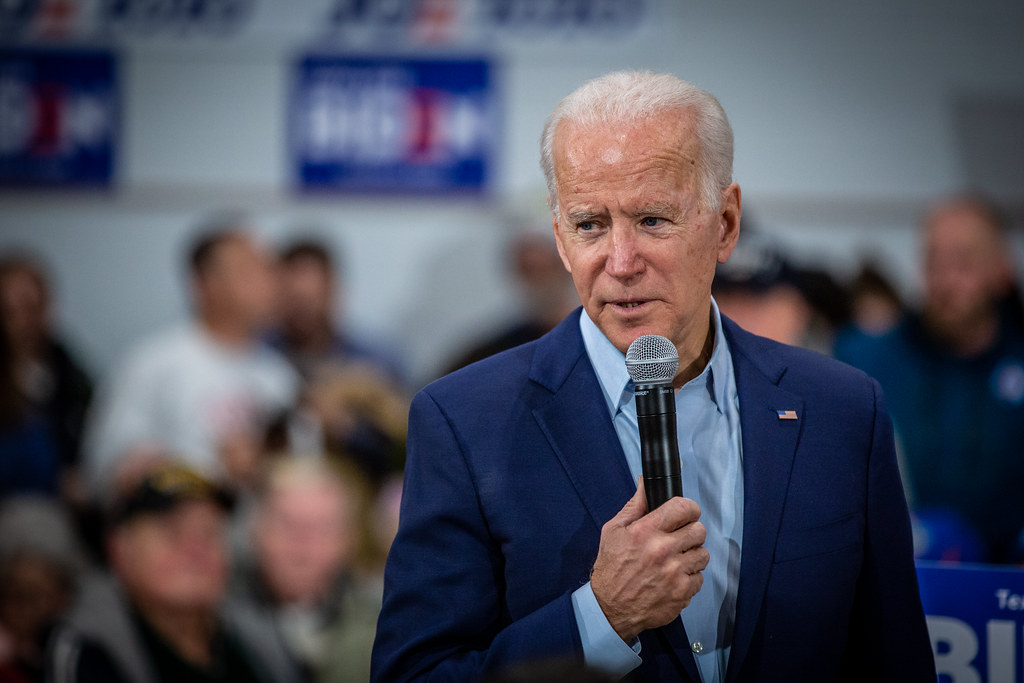
February 11, 2022
Abandon Blue Slips: An Examination of the U.S. Attorneys Office
President Biden campaigned on ambitious reforms to the criminal legal system. Among these promises were key proposals like expanding the use of the President’s clemency powers, reorienting federal prosecutorial priorities, and decentering carcerality in the Federal system. His administration has also promised the public a new focus on white collar and corporate crime as part of a fundamental shift towards systemic accountability instead of individual punishment. Yet, more than a year into Biden’s presidency, many of these promises remain unfulfilled. His Department of Justice (DOJ) – a key tool in the fight for meaningful legal reforms – remains pockmarked by Trump-era officials and lacks the permanent progressive leadership integral to successful reform efforts. U.S. Attorneys’ offices, in particular, remain limited by the standing lack of nominations, confirmations, and stable leadership that persists over a year after President Biden’s inauguration.
February 03, 2022 | Revolving Door Project Newsletter
From Shriveled Enforcement to OLC Opinions, Trump Stench on Exec Branch Remains
It seems that each passing day brings another example of how chronic underfunding of government is threatening the Biden administration’s ability to make good on its promises to the public. On the campaign trail, for example, Biden pledged to hold polluters accountable. But, according to a new analysis from Public Employees for Environmental Responsibility (PEER), Environmental Protection Agency (EPA) referrals to the Justice Department fell to their lowest level in three decades in 2021 and were fully one-third lower than in 2020. A lack of capacity may also be undermining the EPA’s ability to quickly and effectively deploy new infrastructure funds for wastewater and drinking water infrastructure programs, lead pipe replacement, and cleanup of PFAS contaminants.
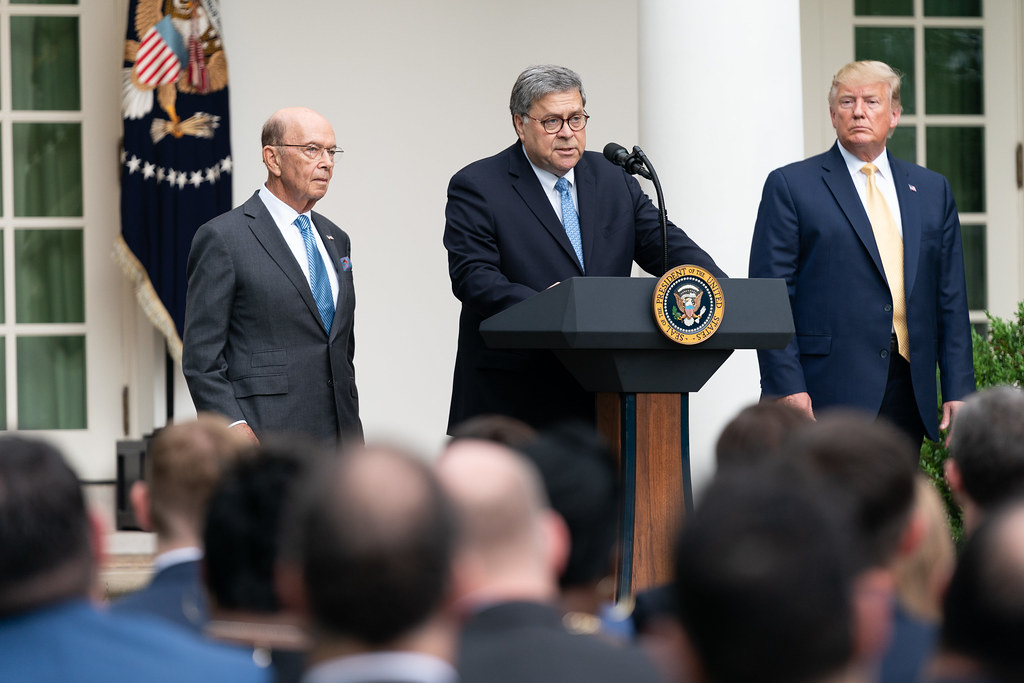
January 31, 2022 | The American Prospect
Garland Has Yet to De-Trumpify His Office of Legal Counsel
One former employee of the Office of Legal Counsel, upon quitting her job during the Trump presidency, described the OLC’s work to The Washington Post succinctly: “using the law to legitimize lies.” Three years later, and a year after Trump left office, most of those legitimized lies remain intact.
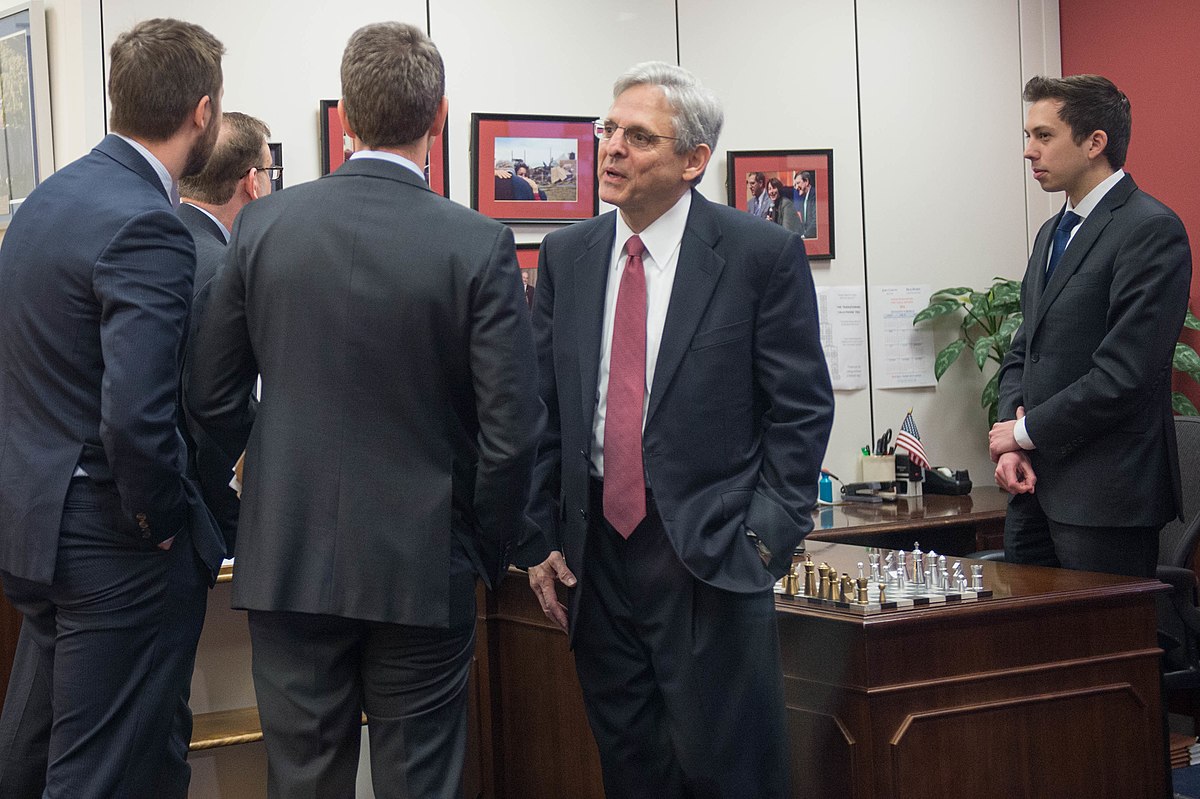
January 27, 2022
Letter to Attorney General Merrick Garland Highlights Urgent Need for Resources in the Antitrust Division
The Justice Department plays a key role in President Biden’s vision of promoting “the interests of American workers, businesses, and consumers” through increasing competition, a plan which stands to be one the most enduring legacies of this administration. Your commitment to promote “competition by fairly and vigorously enforcing the antitrust laws,” along with the confirmation of Jonathan Kanter to Assistant Attorney General for the Antitrust Division, are crucial steps forward in this vision.
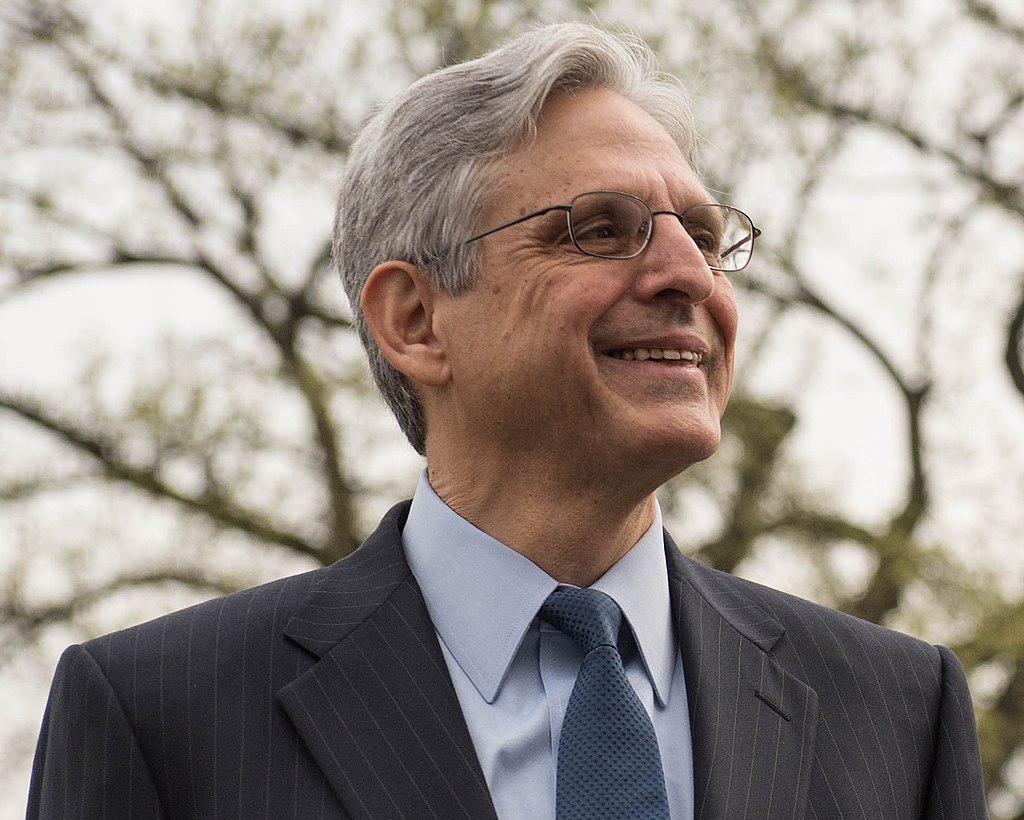
January 25, 2022 | Talking Points Memo
Op-Ed 2020 Election/TransitionDepartment of JusticeExecutive BranchIndependent AgenciesRevolving Door
DOJ Civil: Progressives Should Pay Attention To The Actions Of This Powerful Litigating Division
If you search for the Civil Division of the Department of Justice (DOJ) on Google, you’ll find an overwhelming majority of search results are for the Civil Rights Division. That’s unsurprising — the average person is typically more aware of the Civil Rights Division’s work. And it makes sense: As the “crown jewel” of the DOJ, the division performs the crucial work of enforcing the laws that prohibit discrimination.
